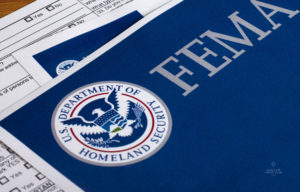News & Insights
Friday, July 16, 2021
U.S. Government Agencies Warn Companies of Risks of Doing Business in Hong Kong
The Departments of Commerce, Homeland Security, State and Treasury issued a Business Advisory on July 16, 2021 warning of the risks of doing business in Hong Kong. The Business Advisory states that, as a result of China’s newly enacted National Security Law and other legislation, businesses and individuals operating in Hong Kong now face heightened regulatory, financial, legal and reputational risks. Actions by companies that are found to violate these laws, even if occurring outside of China and Hong Kong, may subject companies in Hong Kong to criminal fines and suspension of their operations. Specifically, the U.S. agencies warn of four categories of risks to businesses, individuals, academic institutions, research search providers and investors that operate in Hong Kong, as follows—
1. Risks for Businesses Following the Imposition of the National Security Law
Offenses established by the National Security Law (NSL), which was enacted in June 2020, include secession, subversion, terrorist activities, and collusion with a foreign country or external elements to endanger national security. Individuals in Hong Kong have been arrested under the NSL for publishing newspaper articles, participating in routine democratic processes, expressing an opinion regarding the government or the Chinese Communist Party, and attending public gatherings. Penalties can include criminal fines and imprisonment, including life imprisonment in certain circumstances. Companies that violate the NSL may be subject to criminal fines, have their operations suspended or licenses or business applications revoked—even where the alleged violative conduct occurs outside of China and Hong Kong. Hong Kong authorities have arrested foreign nationals under the NSL, including one U.S. citizen. Those arrested may have travel documents confiscated and may be prevented from departing Hong Kong.2. Data Privacy Risks
The Business Advisory notes that companies operating in Hong Kong face heightened data privacy risks associated with warrantless searches (including of electronic devices) and the surrender of data to authorities. The NSL expanded the ability of China and Hong Kong authorities to collect data from businesses and individuals in Hong Kong for actions that may violate “national security” such as through wiretaps, electronic surveillance, and forcing Internet service providers to provide or delete data and other information relevant to national security cases without any judicial oversight.3. Risks Regarding Transparency and Access to Critical Business Information
The Business Advisory notes that, since the imposition of the NSL, Hong Kong authorities have increased pressure on freedom of expression, notably freedom of the press. Journalists have been arrested and prosecuted, movies deemed to “endanger national security” have been banned, radio and television outlets have been forced to delete their online content, senior executives of a pro-democracy newspaper have been arrested and the newspaper’s assets have been frozen.4. Risks for Businesses with Exposure to Sanctioned Hong Kong or PRC Parties
U.S. persons and companies subject to U.S. jurisdiction are responsible for complying with U.S. sanctions programs and export controls which, with respect to Hong Kong and China. For example—- U.S. persons are prohibited from dealings with blocked persons without a general or specific license from the Department of the Treasury’s Office of Foreign Assets Control (OFAC).
- All items subject to the Export Administration Regulations (EAR) that are destined for export, reexport or transfer (in-country) to or from Hong Kong are now treated as exports, reexports or transfers (in-country) to or from China. In addition, the EAR restrictions that apply for military end-use or military end-users, including military intelligence, now apply to Hong Kong.
- The Hong Kong Autonomy Act (HKAA) authorizes the blocking of assets and visa restrictions on any foreign person that has materially contributed to China’s breach of its obligations under the Joint Declaration or the Basic Law, as well as certain sanctions on foreign financial institutions that have knowingly conducted a significant transaction with a foreign person determined to meet the criteria described above.
- The Hong Kong Human Rights and Democracy Act (HKHRDA) authorizes the blocking of assets and visa restrictions on any foreign person responsible for the extrajudicial rendition, arbitrary detention, or torture of any person in Hong Kong, or other gross violations of internationally recognized human rights in Hong Kong.
- Executive Order (E.O.) 13936 imposes sanctions on foreign persons that have participated in developing, adopting, or implementing the NSL, serious human rights abuses in Hong Kong, and actions or policies that undermine democratic processes or institutions in Hong Kong or threaten the peace, security, stability, or autonomy of Hong Kong. Sanctions may also be imposed on foreign persons that have materially assisted, sponsored, or provided financial, material, or technological support for, or goods or services to or in support of, persons subject to the above-referenced sanctions.
Please contact Melissa Proctor (melissa@millerproctorlaw.com) or Peggy Chaplin Louie (peggy@millerproctorlaw.com) should you have any questions about these recent developments or other international trade issues.

